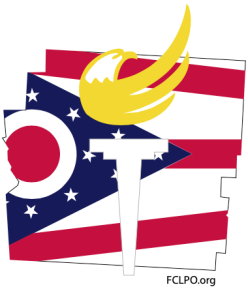Reprinted with kind permission from Mises.org
Despite what you were taught in school, governance is ugly; in all forms, and at all times. Don’t believe me? Attend a meeting of a local governing entity. You will find the council — omnipotent by vote, omniscient by delusion — seated before you at the table. All night long, they’ll bicker and battle all the while proposing and dissecting plans and schemes with shouts and pounding shoes; Khrushchev moments indeed.
This is the reality of man lording over man, and it’s been that way for eons. Ugly, just plain ugly. And it doesn’t matter the span or purpose of the governing entity. This ugly reality holds equally true for the fist-fighting Taiwanese legislator as for the insult-hurling band booster. Power corrupts at all levels.
One other aspect of governance appears to be consistent at every level: the broader the scope of the proposed plan or idea, the further they reach beyond the stated bounds of the entity, the more receptive a hearing that the entity’s council will give to the idea. Everyone dreams grandiose dreams, whether during solitary reflective moments or while monopolizing the public microphone. But it’s the bully at the public mic, entertaining the media and sparse audience, whose dreams we must fear.
Given that these aspects are inherent in the essence of power, the issue is not how to improve systems of governance, but how to control their scope.
Because enforced contract law and full property rights are the foundations of freedom, governance systems should be based on enforceable contracts that defend property rights. The concepts of general welfare and public good have no place in such systems, as the intent of those ideals is to break contracts and trespass on property.
Governance — government — must be limited in a manner that is akin to a legal, binding contract, where rights are understood and unchanging. While a contract-based system will not change the ugly aspects of the lording class, it will limit the effects that the omnipotent and omniscient have on your pursuit of happiness.
The best way to compare the current systems of unbounded authority with that of contract-based systems is to attend meetings of a homeowners association and meetings at a local township hall. Both entities have documents that define the span and purpose of their respective assemblies, yet only the contract-based system shows any real restraint. Certainly, both dream of utopia, but only the homeowners association must accept the inherent realities of signed agreements.
In Ohio, townships can pass comprehensive plans and zoning codes in order to create orderly communities. Zoning codes are supposed to provide hard, fast rules akin to a written contract between community members with township officials acting as enforcers. Yet, zoning codes are perceived by the marginal vote getters and their appointed minions as something else entirely. In the hands of the township officials, zoning codes are, in the words of Barbossa from Pirates of the Caribbean when referring to the concept of parley, “…more what you’d call ‘guidelines’ than actual rules.”
Consider this situation: You moved into an area that is zoned as a conservation district where developments are limited to 1 home per acre, with natural exteriors, and abundant green space. You desired to live in your neighborhood since it is within the conservation district, an area that meets the development standards you prefer. You had assumed that the zoning codes in place would protect you from development based on subjectively lower standards.
After living in your new home for a year or so, you catch a notice in the local paper that your township is considering a proposed development on the fallow farm fields and woods that abut your backyard. So, you attend the zoning hearings to see what will become of your backyard vista. At those meetings you quickly remember the prescient words of Barbossa.
The zoning commissioners are willing to trade homes per acre, natural exteriors, and green space for a donation of an offsite piece of land for a future community park or fire station. Sure, you hold the zoning codes — still in force — in your hands as if it is a contract to be enforced by the township, yet the zoning commissioners and township trustees see that document as the starting point for exactions and extractions; what the developer considers extortion by other means.
You can complain and shout, but the governance system that you have encountered has no consideration for your assumed contract. The commissioners and trustees only care about their grandiose plans for a utopian community. Your long-term vision of your local neighborhood, based on current regulations, just met their long-term vision of posterity; the one where future residents sing praises to the plans and vision of the current ruling elite.
Now, consider the homeowners association (HOA). Certainly, the same taste of power has corrupted the key players. They have dreams too, but their dreams are limited by the restrictive covenant that governs use of the property covered by the association. Sure, they send out a monthly newsletter with words of wisdom regarding how residents should live their lives, but they can’t do anything about it. The concepts of general welfare and public good are not defined on the deed filed at the county offices as purposes of the association.
Now, I’m not saying that some residents will not suffer the occasional annoyance as HOA trustees hold the color pallet against your mailbox to verify the hue of the stain which you applied, but they can’t change the usage of your neighbor’s property from residential to commercial. Nor can they subdivide properties or dig up sidewalks. The HOA members have utopian dreams, but contracts limit their reality to mending fences and mulching entrance ways.
Other than showing excessive exuberance at times, the HOAs are typically indicted in the press when the singular property owner wants to turn his front yard into a memorial for the flag, replete with search lights and a continually repeating sample of Taps. What’s worse, the property owner knowingly agreed to such restrictions prior to purchasing the property. The homeowner, attempting to trample on the agreement, is hailed as the last defender of Lady Liberty herself, while the HOA, defending its contract with all homeowners, is perceived as evil incarnate.
Such inconveniences and annoyances are nothing compared to the damaged resulting from unbounded governance. As you move up the governmental food chain, you will find that each subsequent level reaps more damage, more ills. At the federal level, it is as if no bounds exist anymore. Sure, the separate branches mention the Constitution, but only as a means to pervert its moral authority.
Some will claim that the Constitution is our written contract, binding rule of law, and restrictive covenant, yet its perversion would seem to imply that contract governments, whether constitutional public or anarcho-libertarian private, are bound to fail.
But, not so fast. For the private supplier of governance, the entrepreneur across the street offering a similar service is enough of a threat to keep private governing bodies in line.
On the other hand, the political class simply requires rumblings from the masses. Rumble, and they shall fear. Shout, and they shall bend. Scream, and they shall wither.
The ilk that sit at the head of the table, whether local, state, or national, are most concerned about keeping their power and status. These are not men and women of principles. They are simply power seekers. They will wither and do as told once this great nation says, “Stop! Respect the Constitution.” They would rather flip and flop than risk the next election.
The ruling elite know this, that’s why they utilize a coerced education system to perpetuate their nonsense. Yet, a simple booklet such as the comic version of Hayek’s Road to Serfdom can turn enough minds to shake the tables of power. But, just because many have lost sight of “Don’t Tread on Me,” doesn’t mean all is lost. A little more education, a stronger tug on the collar of the elected, and the direction toward socialism could reverse overnight.
So, whether your concept of government is constitutional public or anarcho-libertarian private, contract governments will work. They’ll be messy, the public version will take conviction of the governed, but their scope will not creep onto your property and liberty.
Jim Fedako, Contributer


